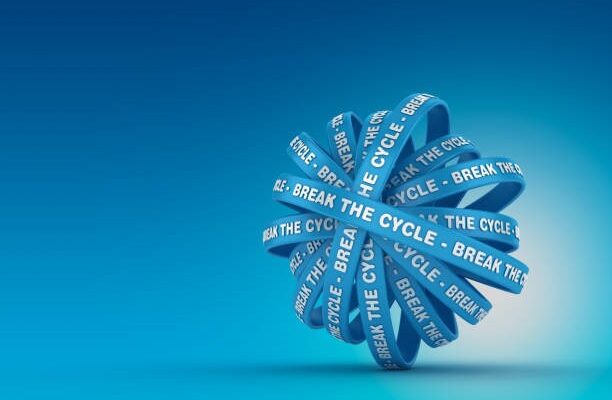Are You Struggling With Imposter Syndrome? Here Is How To Counter It

I do not deserve what I have.
Did they hire me for my knowledge, or was it a mistake?
They will find out I’m not who they think I am and lay me off.
Have such thoughts crossed your mind one too many times when good things happen to you?
Many people feel this way at different points in life. These thoughts make you think you are undeserving, a fraud, and carrying a false identity; therefore, an imposter.
WHO IS AN IMPOSTER

Source: Istock photos
Let’s begin with the basic meaning of the term imposter.
The Oxford Dictionary defines an imposter as someone that pretends to be someone else to deceive others, especially for fraudulent gain. Additionally, Merriam-Webster Dictionary defines an imposter as someone that assumes a false identity for deception /to take advantage of others.
Urban Dictionary defines an imposter as someone who uses someone else’s achievements/good name for personal benefit. Finally, dictionary.com describes an imposter as one who practices deception under an assumed character or identity.
Why is it necessary for you to know all these definitions? It is important to note that all the interpretations use the word imposter negatively.
The root word of the syndrome can tell you that imposter syndrome isn’t necessarily a positive thing. It, therefore, doesn’t produce positive feelings and results in the long run.
IMPOSTER SYNDROME DEFINITION

Getty Images
Psychologists Clance & Imes (1978) first came up with the term, and according to them, high-achieving women experienced it predominantly. Looking at the time when they did this survey, it may have been the case, although, in this current generation, a vast majority of men also go through imposter syndrome.
It is a psychological experience that causes a disconnect between the success you’ve achieved and how you feel about it. It often makes you feel like a fraud, you are living someone else’s life or dream, and you’ll be ‘caught’ for doing that.
That deprives you of the joy of celebrating your achievements and switches the focus to how you are undeserving, inadequate, and unqualified. It comes with a myriad of negative emotions like fear, anxiety, self-doubt/doubting your abilities, negative self-talk, depression, physical illnesses, and restlessness, to mention just a few.
TYPES OF IMPOSTER SYNDROME
According to Dr. Valerie Young, in her book “The Secret Thoughts of Successful Women: Why Capable people suffer from Imposter Syndrome”. There are five types of imposter syndrome.
The Perfectionist

Image: Getty
Someone who believes an achievement is a failure if things do not happen as planned. You count success only when everything falls in place perfectly, and you do it to the letter (the ‘i’ is dotted and the ‘t’ is lined) when the result is nothing but 100%. 99% is not good enough.
When all these things are not in place, you do not feel your win is worth celebrating. It still feels like a failure, like you are enjoying something that you are undeserving of. Consequently, that elicits negative emotions like inadequacy, anxiety, and fear that others will discover you are a fraud. It affects others because you may overcompensate, criticize yourself, and overlook the team effort.
The Soloist
You believe you can do everything on your own, that if you ask for help, you don’t deserve to enjoy the triumph of the said project. Second, you are unwilling to ask for assistance regardless of the situation. It comes from the belief that doing that leaves you vulnerable and proves to others that you don’t know what you are doing.
The Expert

Image: RF Studio
You believe everything has to make sense for it to be shared and that you must know the next step and the reason behind everything. Besides that, you think you must study to the highest level of qualification to be an authority in your field. In addition, you must know everything there is to know about something or master every step, formula, or process of doing things.es from the belief that doing that leaves you vulnerable and proves to others that you don’t know what you are doing.
If that does not happen, then you are not an expert in your field and so shouldn’t enjoy the milestones or success you’ve been able to achieve. According to you, the goal is to be an expert in your field/dealings. It affects others because it may delay project timelines and deter teamwork and risk-taking (necessary for some ventures like businesses). Masked below this “expert” surface is the fear of failure.
The Natural Genius

Istock photos
You feel like a fraud or a deceiver simply because you are not a natural genius. You believe that the first time you do something, you ought to get it right; else, you feel inadequate. When you struggle a little more, you assume you are failing. If you need to research more, edit, or redo work you’ve already done, that does not count as a win.
The natural genius may find it difficult to accept constructive criticism aimed at improving the quality of work. It is so because when told something needs some extra effort, you feel like it is a threat and that you have failed already.
The Superperson
You believe you must work the hardest or get the highest possible achievement to count it as a win. That you need to get things done as fast as possible and that you can undertake all tasks. If you rest, say you don’t know something, or if something is given to you that you didn’t earn, it makes you feel inadequate, like you are a fraud. This syndrome can lead to burnout, feeling used, taken for granted, undervalued and underappreciated.
Today allow me to give you an assignment; we have at least two other types of imposter syndrome; which ones are they, and which do you relate with? Engage with us in the comments.
WHERE DOES THIS STEM FROM?

David Bartus
Imposter syndrome is a cognitive distortion within itself and can stem from:
- Childhood hurt – Receiving criticism and even punishment for not achieving as much as your siblings or comparing your best to your ‘naturally smart’ sibling. It could lead to overcompensating to do what’s perfect to receive validation.
- Fear of failure – Overanalyzing everything to ensure things align for you to take the next step. It could be because you’ve failed before, or sometimes it is because you perceive failure as the end of the world, but it isn’t. If you talk to the most successful people you know, you’d be shocked to discover that they failed about 100 times before one success came.
- Perception on struggling/Criticism – You have an idea that if it requires more work or help, then it is not working. Successful brands throw out thousands of samples (which they test repeatedly) to ensure they put out the best products. The final product would never know how long it took to create and how many samples they disposed of before settling on one. Slow progress is still progress, so do not give up.
- Shame – You feel like asking for help is a weakness/lack of knowledge. Imagine how it feels when you do something for hours that your colleague could show you how to do in 10 minutes, only if you asked. No one knows it all, human beings are interdependent, and you need each other to soar to greater heights.
- External validation – You value what others think about you, or your results determine your identity. In turn, it lowers your self-esteem when you do not achieve what you want when you want it. It is crucial to let you know that your results will not always reflect your effort behind the scenes and vice versa.
WHAT’S WITHIN YOUR CONTROL

Lukas
All these things are probably a lie. Human beings are imperfect. You work together for the greater good (man is not an island). Apart from this, you do not know it all. You also do not have to work like a dog to earn everything; you can receive things from others as long as you live. Also, you can ask for help. Those are one of the most beautiful things about the life you live. That is how limited yet unlimited humans are.
The good news is that you are in control. You can change your thoughts and belief systems. In addition, you can make what looked like a permanent limitation become a memory. Do not sell yourself short you can change all these beliefs one step at a time.
You can cut the tree from its roots by focusing on your underlying issues and where they stem from. Is it your mindset, your trauma/wound? ‘Kujiita mkutano, ’ loosely translated to ‘ self-evaluating/reflecting, ‘ allows you to explore and challenge your thinking patterns. You can let go of the pains to enjoy the simple joys of life.
With support from your therapist and your loved ones and the strength to face who you are now as you grow towards being the best version of yourself, you will soar, and milestones within your life will not go uncelebrated.
Writer,
Sheila K. Muli











[…] Are you struggling with imposter syndrome? […]
Very informative article it have inspired me greatly especially being a perfectionist , I must change my perception.
Oh Yes, Charity. No one has it all figured out. You can change that and become better from it.
Awesome writing!
Shukran Brian